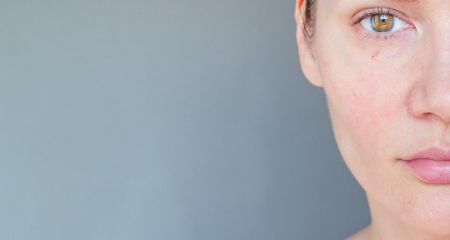
Experiencing persistent facial redness or flushing, visible blood vessels, or acne-like breakouts? You may be dealing with rosacea. The expert dermatologists at Northstar Dermatology specialize in evaluating and treating rosacea, offering personalized treatment plans to clear active flares and help prevent new ones.
Rosacea is a chronic skin condition that primarily affects the central area of the face. Symptoms vary between individuals and may include one or more of the following:
Individuals with rosacea may experience periods of flare-ups, lasting from weeks to months, followed by times of remission with few or no symptoms. Various factors can trigger these flare-ups, including:
The primary treatment approach for rosacea is to avoid the above triggers as much as possible. When avoiding triggers isn’t sufficient, additional treatment strategies include:
Gentle Skincare and Sun Protection
Using a gentle cleanser, moisturizer, and sunscreen can help calm the skin and improve tolerance to topical treatments. Always apply a broad-spectrum sunscreen—mineral sunscreens are often less irritating for rosacea-prone skin— with SPF 30 or higher. Reapply every 2 hours and wear wide-brimmed hats and sunglasses for added protection.
Topical Medications
Several topical medications (creams, gels, lotions) target specific rosacea symptoms. Topical anti-inflammatory agents like azelaic acid and benzoyl peroxide are effective for acne-like breakouts, while metronidazole (Metrocream, Metrogel) and ivermectin (Soolantra) treat both acne-like lesions and redness. Oxymetazoline (Rhofade) or brimonidine (Mirvaso) creams can help with flushing and persistent redness, while sulfur-containing washes can consistently reduce redness. These treatments can also relieve rosacea-associated burning and stinging.
Oral Medications
Low-dose tetracyclines such as minocycline and doxycycline are sometimes prescribed to reduce more advanced inflammation and prevent skin thickening. For severe acne-like breakouts and inflammation, isotretinoin (Accutane) may be used.
Laser and Surgical Treatments
Laser treatments are effective in reducing visible blood vessels, moderating facial redness, and minimizing skin thickening. For advanced cases of skin thickening, procedures such as electrosurgery (hot loop) or radiofrequency may be performed.